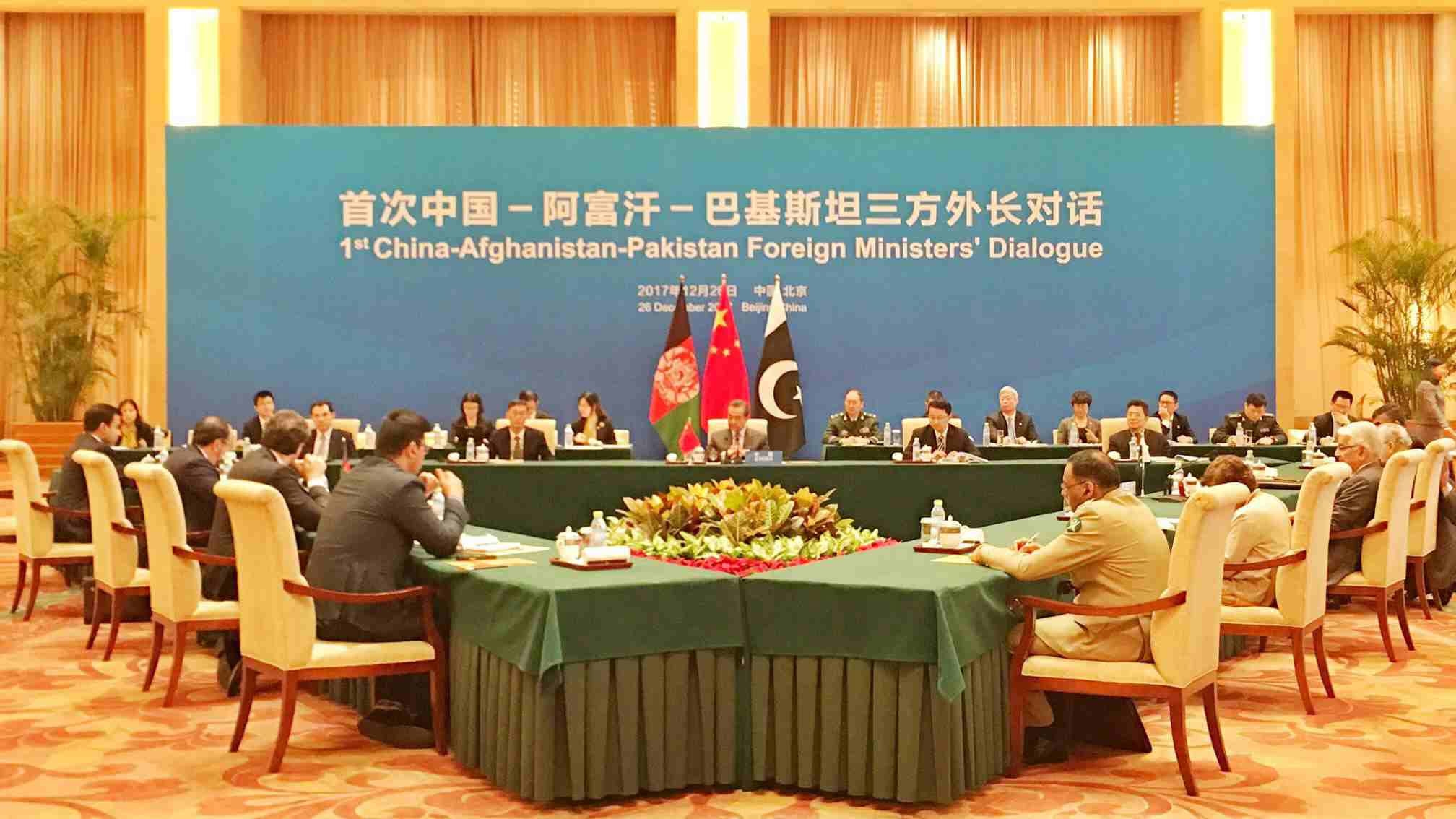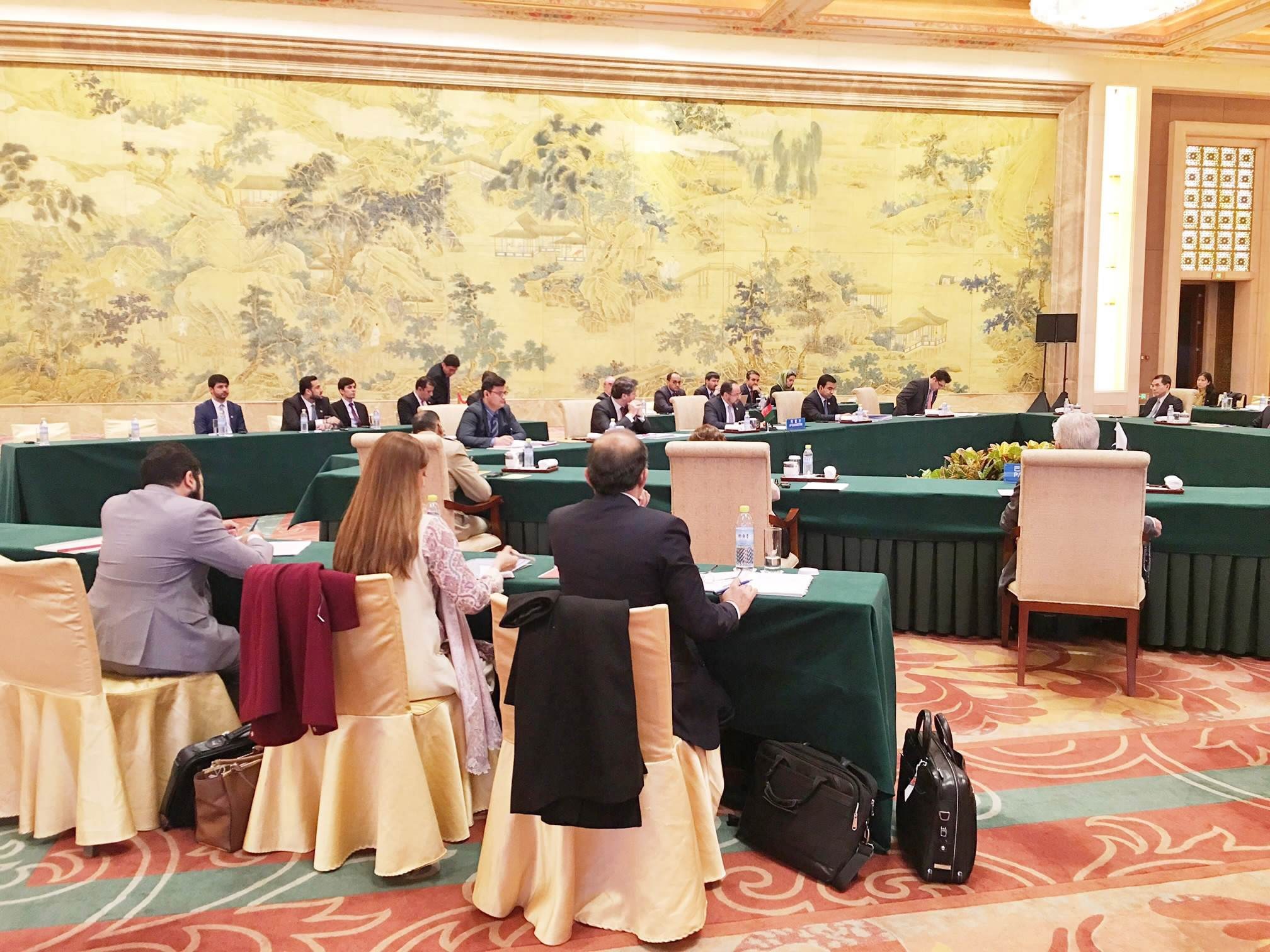
Opinions
17:42, 26-Dec-2017
Opinion: Beijing is the key to a win-win situation for Kabul and Islamabad
Guest commentary by Shadi Khan Saif

In stark contrast to most of the regional and international players that have got their hands dirty in Afghanistan by pushing their own agenda and attempting to undermine the country's sovereignty, China has, without doubt, successfully maintained a neutrality that is highly regarded by the Afghan people.
Kabul has long sought Beijing’s role in both economic cooperation and, more importantly, diplomacy, in moves towards peace in the country - especially in regard to neutralizing some of the foreign meddling. Among various platforms established by the international community, as well as by the Afghan government, for political engagement aimed at bringing peace, the China – Afghanistan – Pakistan Foreign Ministers' trilateral dialogue mechanism has tangible prospects of delivering the peaceful outcome desired by the war-weary Afghans.

Chinese Foreign Minister Wang Yi (R) meets with his Afghan counterpart Salahuddin Rabbani in Beijing, capital of China, Dec. 25, 2017. Rabbani is here to attend a China-Afghanistan-Pakistan foreign ministers' meeting. /Xinhua Photo
Chinese Foreign Minister Wang Yi (R) meets with his Afghan counterpart Salahuddin Rabbani in Beijing, capital of China, Dec. 25, 2017. Rabbani is here to attend a China-Afghanistan-Pakistan foreign ministers' meeting. /Xinhua Photo
As China hosts foreign ministers from Kabul and Islamabad in Beijing this week, the conflict levels – that used to decrease in these winter months in Afghanistan – remain dangerously high and are claiming more and more lives, not only of those involved the conflict but among the vulnerable civilian population too.
In line with the new US war strategy, the American and the Afghan forces are vigorously going after the rebels in all corners of the country and conducting more and more air and ground offensives.
According to a US Air Force Central Command report, the Trump administration targeted the Taliban and the so-called Islamic State of Iraq and the Levant (ISIL) with 751 airstrikes in September alone. It is said to be part of a strategy of developing pressure in order to force the Taliban to accept that they cannot wait out the US and NATO in Afghanistan, and the only way for them to have legitimacy and a future in the country is to engage in talks.

CGTN Photo
CGTN Photo
With the US as the main player in this scenario, shifting from a time-based strategy in Afghanistan to one based on situations on the ground, many countries in the region, such as Pakistan, seem clearly upset about the long term prospects of American boots being on the ground in Afghanistan - Iran and even Russia also feel the same. Over the years, the US and its allies’ frustration towards Pakistan has increased due to Islamabad’s alleged links to rebel and terrorists groups in the country and the same is happening with Tehran and Moscow now.
All of this will lead to confrontation and a prolonged and deadly war in Afghanistan, a country that has been at war for over 40 years since the Soviet invasion.
Unlike some other international conflicts, China is not seen by the West as being involved in Afghanistan, which makes chances of headway at the China – Afghanistan – Pakistan Foreign Ministers Foreign Ministers' trilateral dialogue mechanism more likely.
In this scenario, China's soft diplomatic power, on top of Beijing’s significant clout over Islamabad, is perceived as a much-needed alternative to the warmongering.
The rise of China as a global economic power is exemplary for the world, and Kabul and Islamabad can learn a lesson or two from it. Afghanistan has been blaming Pakistan for imposing ‘an undeclared war’ and the worsening ties have already cost Pakistan losses of over a billion US dollars’ worth of annual exports to Afghanistan.
With Chinese President Xi Jinping’s Belt and Road Initiative (BRI), Beijing has embarked upon a mammoth exercise to change the face and fortune of many countries around the world, and Pakistan in particular should look above its security-centric approach towards Afghanistan and give peace a chance in the region.
Afghan President Mohammad Ashraf Ghani, with his vast experience as a World Bank economist, is clearly on the path of economic integration in the region, and with the Dragon’s oversight as guarantor, it is possible for Kabul and Islamabad to have a win-win situation.
(The author is a senior journalist and analyst on Afghanistan and Pakistan. The article reflects the author’s opinion, and not necessarily the views of CGTN.)

SITEMAP
Copyright © 2018 CGTN. Beijing ICP prepared NO.16065310-3
Copyright © 2018 CGTN. Beijing ICP prepared NO.16065310-3